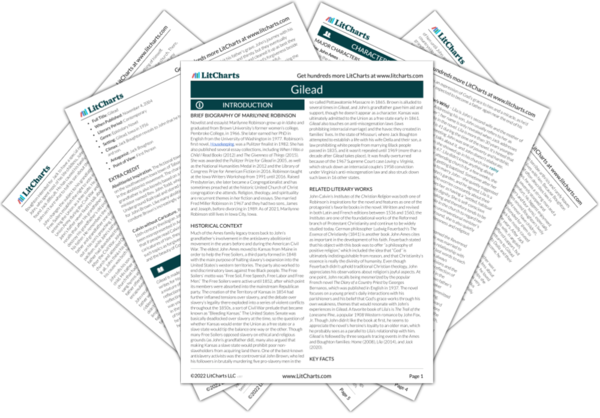Jack abruptly changes the subject and tone, becoming more critical of John’s faith and, implicitly, of John himself. This seems to wound John deeply, although it isn’t clear exactly what’s triggered his tears. At the very least, he’s grieving the fact that he and Jack, his namesake, can’t seem to communicate with each other, especially about the subjects that mean the most to John.
